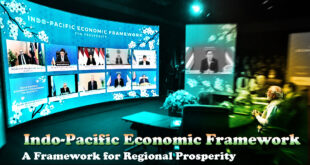India needs a national party to provide substantive opposition to the government — all is not lost for the Congress
Today, we, the people of India, are trapped between a rock and a hard place. On one side is the Bharatiya Janata Party (BJP) which continues to bulldoze legislation, controversial at best and ill-intentioned at worst, through Parliament. On the other is the Opposition, unable to mount a concerted and effective critique of government policies. The sluggishness of the non-NDA parties is cause for some puzzlement. After all, 55% of the electorate has voted for them. Unfortunately, this vote is hardly reflected in Parliament. Political scientists have been, for long, concerned with the often astounding gap between vote shares and the number of seats a party obtains in Parliament. This leaves a majority of the voters unrepresented. Democrats have strongly argued that the “winner takes all” principle needs to be relegated to the wayside and replaced with the system of proportional representation. This is, however, another story. The BJP is hardly likely to initiate an electoral project that might derail its relentless search for power by any means.
Bearish on the economy
What the ruling party is doing with the power it has acquired is equally puzzling. India is heading toward an economic crisis. Economic growth has slowed down, domestic and global capital is reluctant to invest in the economy, and unemployment reaches a new high every day. Seldom have prominent industrialists expressed such public concern about impending economic disaster as they have now. But the BJP hardly shows interest in tackling the situation. It is more interested in demolishing democratic rights and bringing the minorities to heel. All is not lost. Moments of crisis can lead to reinvention. The party must reinvent itself, simply because it is synonymous with the history of our freedom struggle, and with enlightened leaders such as Jawaharlal Nehru. Remember that Nehru’s vision inspired great literature, poetry, films, art, theatre, and architecture. What do we have today except mediocre hagiography? A ruling class which cannot inspire cultural creativity can only rule by coercion. In modern politics, this is counted as a failure. Two, the Congress could lead the mainstream freedom struggle because it had a robust organisation, both decentralised and democratic. The party formed a coalition of what has been called ‘big men’: heads of caste groups, peasantry, industry, religious formations, and workers organisations. When the party initiated or called off a movement, it relied upon second rung leaders. The central leadership left State politics, for example the conflict over linguistic States, to regional bosses. Three, diversity of opinions and interests in the party encouraged members to engage in dialogue and persuasion. They negotiated and a ccommodated class, caste, and group interests within the organisation. The Congress found place for most demands, from interest groups, from individuals desirous of social reform, and from individuals stirred by the desire for power and prestige. The Congress was accommodative and a dialogical party. It practised democracy. Today, India faces imminent economic catastrophe. We confront serious threats to our democracy and to the Constitution. The ruling party is not particularly wedded to democracy. Right-wing authoritarianism has no love for any fundamental right that constrains the exercise of absolute power. Civil society will continue to struggle against violations of democracy. Scholars will write of the threat posed by wielders of absolute power to our constitutional democracy. But civil society has to function along with a democratic political party. Regional parties have degenerated into one-person dictatorships, or become family concerns. We have to call upon a party that had fought the first freedom struggle. The Congress has to step in after it reinvents itself. For only a democratic party can understand what the people of India want, desire and aspire for. It is our duty to remind the Congress that it owes the people of India. What else can we say? We can only repeat Mark Anthony’s words in Shakespeare’s Julius Caesar : ‘For I have neither wit, nor words, nor worth/Action, nor utterance, nor the power of speech/To stir men’s blood/ I only speak right on/ l tell you that which you yourselves do know.’ If the party does not respond, our future is an uncertain one.
Check Also
The Kunming-Montreal Global Biodiversity Framework
Introduction The Kunming-Montreal Global Biodiversity Framework (KMGBF) is a landmark international agreement aimed at addressing …
 Chinmaya IAS Academy – Current Affairs Chinmaya IAS Academy – Current Affairs
Chinmaya IAS Academy – Current Affairs Chinmaya IAS Academy – Current Affairs



